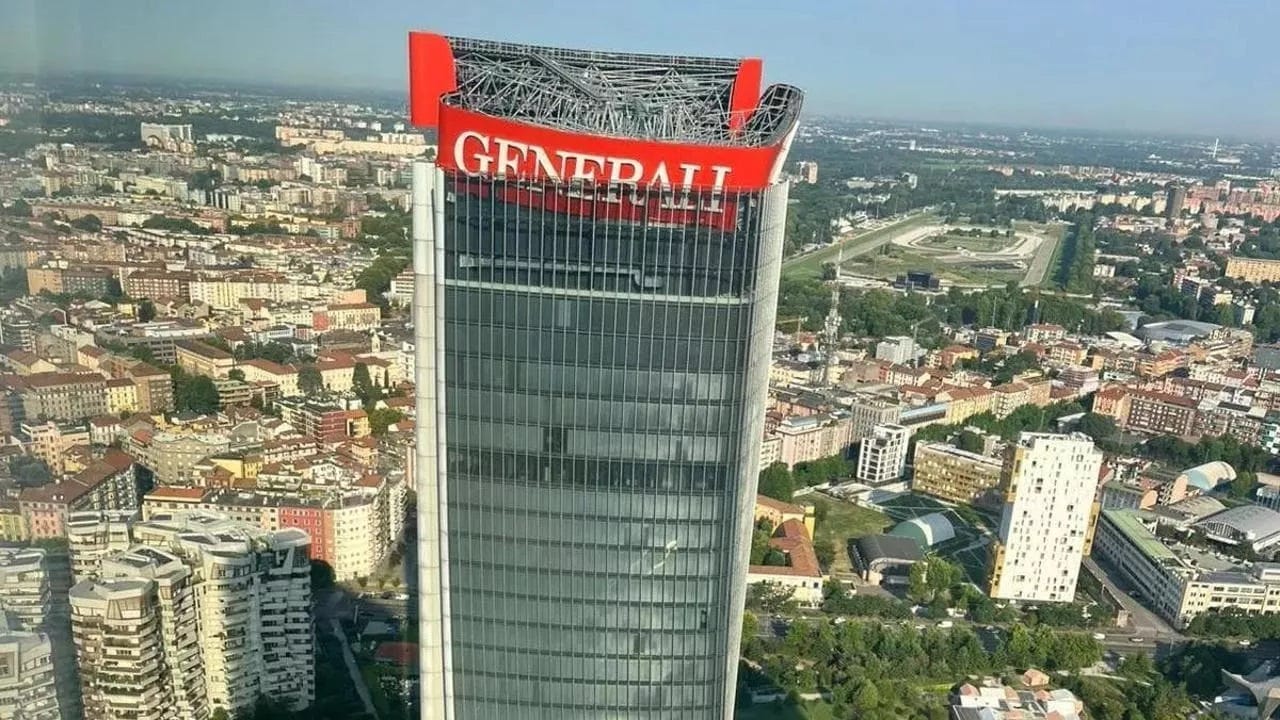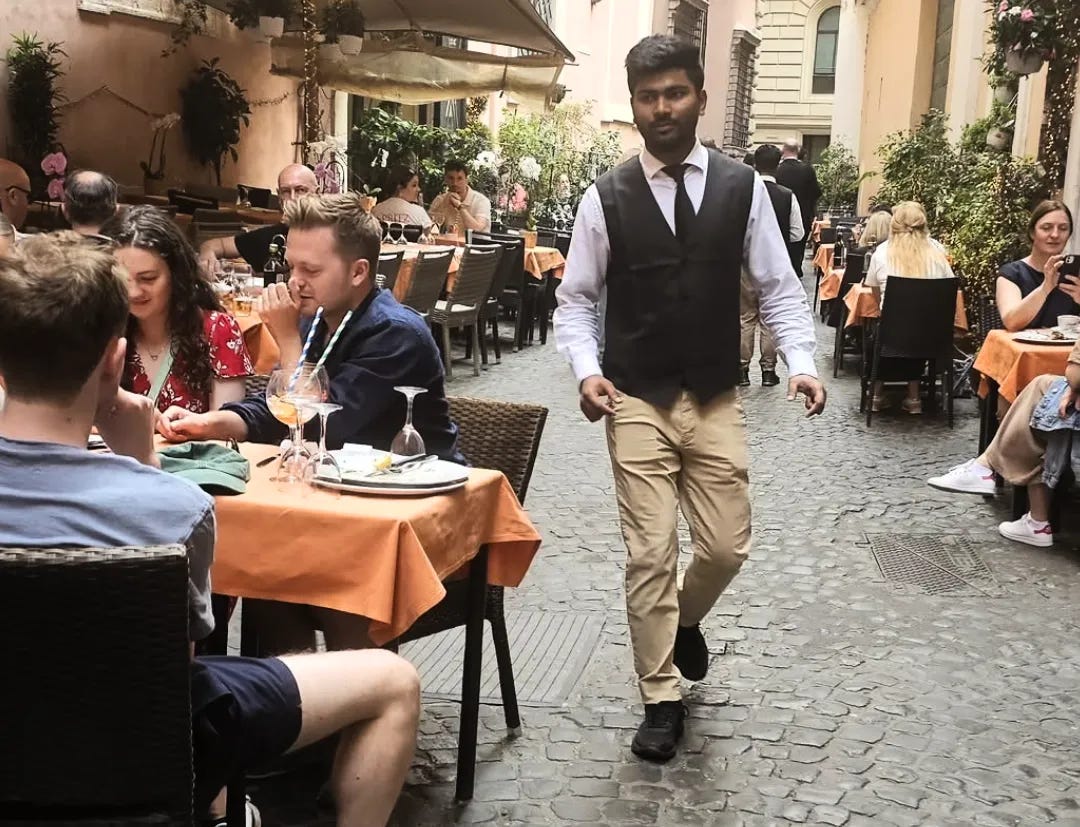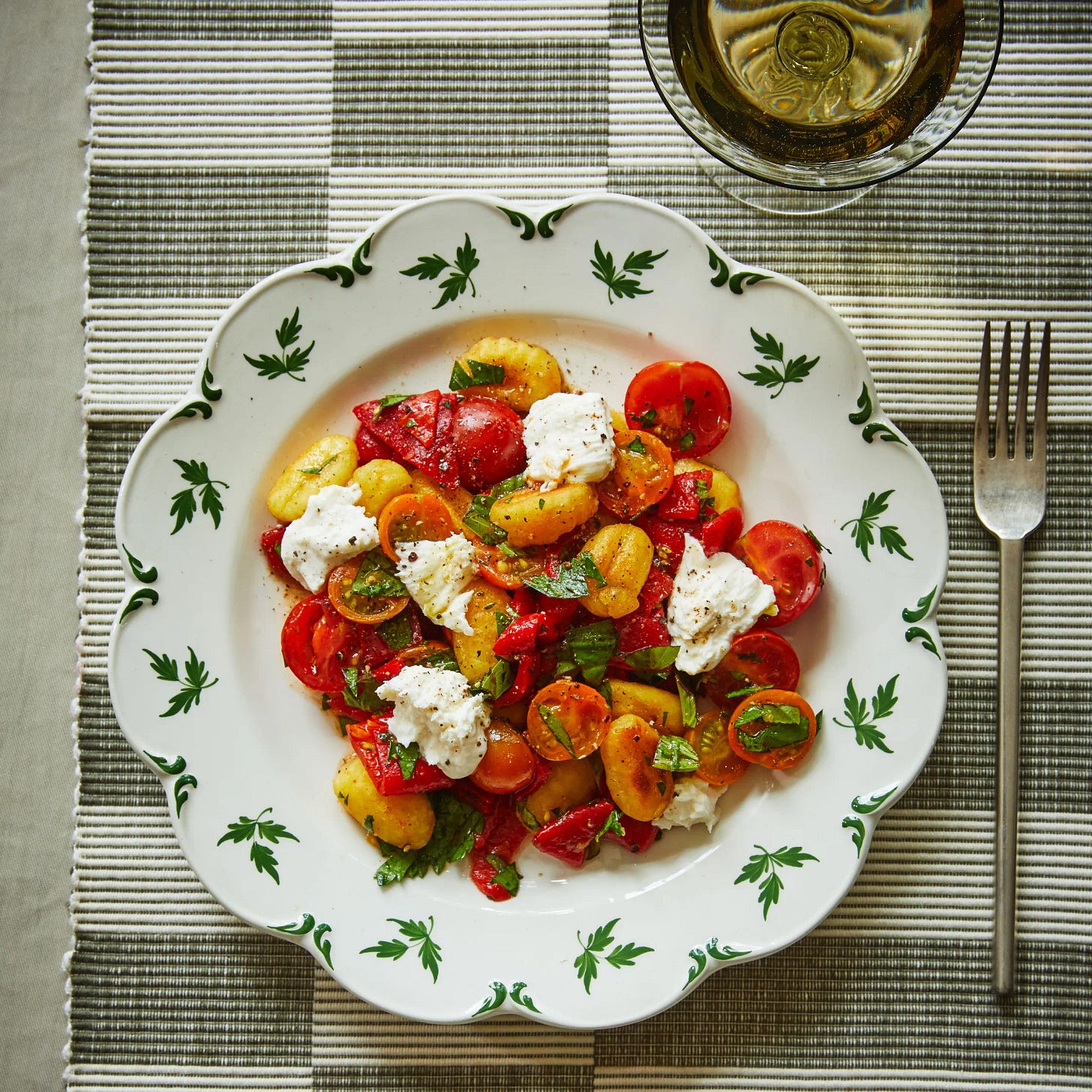More than just a heatwave
Plus, the plight of Italy’s Bangladeshi workers and two books about Mediterranean culture
On Monday, as temperatures in Milan hit the 40-degree mark, the iconic 'Generali' sign atop the world-famous insurer's skyscraper collapsed as a result of the high temperatures. The image spread fast, quickly becoming a symbol of a larger sense of decline. “Capitalism is literally collapsing,” said one Facebook commentator. “Good riddance,” said another. I was travelling back from a trip that day, and returned to find my garden wall collapsed and my Wi-Fi kaputt. Florence, like other cities, has been experiencing blackouts over the past few days due to AC usage overloading the grid. Traffic lights are breaking, there have been train delays and a friend of mine even got trapped in a lift. Many workers are struggling with the sun. Over the weekend, as reports of heatstroke-related illness started coming in, trade unions quickly mobilised to push for action (and, to the government’s credit, emergency hours are now in place). All of which is good and proper. Nevertheless, the economic impact is going to be huge. Recent estimates suggest climate change is costing millions of euros annually with damage to the tune of circa -1.2% of GDP. Construction and farming have been worst hit. I’ve been reading reports of milk shortages, livestock deaths and fruit and vegetables charring in the fields. Italy’s most asinine politicians continue to shrug this off as “summer weather” but this is blatantly insufficient. Sergio Mattarella, President of the Republic, even stepped in to bypass that messaging by demanding “the state act to prevent disasters” and insisted “taking out insurance policies is not enough.” As for the heatwaves, this is just the start I’m afraid. With the Mediterranean currently three degrees above average, and water temperatures of 27 degrees Celcius, the threat of further extreme weather events, and especially flash floods, is a serious one.

If you’re a long-term reader of the Italian news you’ll be aware that successive governments have been promising, and failing, to build a bridge to connect Sicily with the mainland for decades now. Well, this week, a new proposal for that initiative emerged when Foreign Minister Antonio Tajani and Infrastructure Minister Matteo Salvini made a pitch to NATO members that the Strait of Messina Bridge should be classified as a ‘defence expense’ and as such could be included in Italy’s new military spending commitment (5% of GDP). This is not as hare-brained as it might first seem. It’s true that Sicily is of strategic interest to Europe’s security, and it’s true that Italy will need to exploit certain budget loopholes if the country is to meet its obligations. Still, this ‘creative’ solution is raising eyebrows. As Giuseppe Antoci, from the Five Star Movement put it this week: “this is a mockery of the commitments made at NATO [….] the population of Sicily and Calabria suffers from inadequate water infrastructure, snail-paced transport, potholed roads, and third-world hospitals. The bridge over the strait cannot be a priority.” To find out more, including the government’s plan to use EU funds to cover routine expenses, check out this report by Tommaso Lecca, Ben Munster and Martina Sapio over at POLITICO.

A couple of days ago a friend forwarded me a post from a substack account called Brown History. The publication, which I hadn’t encountered before, is dedicated to (re)narrating the “tangled” past of South Asia by exploring “the lives of ordinary people, in the stories that were never recorded, or worse, erased.” On Tuesday Humayra Rabab published an essay over there entitled ‘The Brown Hands Behind Italy's Famed Hospitality’ which shines light on the precarious work experience of Italy’s 150,000 Bangladeshi residents. Rabab outlines how these people, “visible, yet seldom respected” prop up Italy’s hotel and restaurant business, offering their labour in almost all quarters of the industry from the most basic trattorie to luxury fine dining. The full article is behind a paywall I’m afraid, but I do recommend subscribing if you’re interested. Failing that you can also check out the response on social media which has been extensive and revealing, and many have chipped-in to share original testimonies. I think the piece is a great example of how substack can help spread stories that traditional media outlets might overlook, so thanks to Rabab for bringing it to our attention. Here’s the link (and the Instagram comments are here).
Arts & Culture: In Otherworlds
Federico Campagna has long been one of my favourite Italian philosophers. As a friend and colleague, he has inspired, challenged and occasionally irked me for many years now. Last week, Campagna published his latest book which is called Otherworlds: Mediterranean Lessons On Escaping History, and with a title like that I’m sure it’s going to interest a lot of you here. Unlike Federico’s other books, which are academic philosophical works about ontology, metaphysics and politics, this slim volume is a collection of relatively accessible essays about forgotten thinkers who have quietly, radically, shaped Mediterranean culture beyond the Western gaze. The book is subdivided into six sections (Mortals, Foreigners, Cosmonauts, Translators, Traitors, Migrants) and the narrative covers a huge historical arc from the Bronze Age to our own times to demonstrate how pirates, slaves, renegades and publishers “expand[ed] the imaginative horizons of human possibility through modernity and beyond.” I’ll be reviewing this soon, so do keep an eye out for that. In the meantime, if you don’t know Campagna’s work, check out this interview with him and order the new book straight from the publisher here.
In more Mediterranean book news: today marks publication day for Michael Haag’s posthumous work Larry: A New Biography of Lawrence Durrell, 1912–1945, in which he sets out to bust some of the myths around the controversial author’s literary life and persona. Most readers probably know Durrell for his Alexandria Quartet, a tetralogy of novels about Egypt in the Second World War, though I have to admit I’ve long preferred his travel writing, and in particular his essays on Crete and Sicily which stand out for their powerful (if rather romantic) portraits of island life. Durrell was a problematic character. Violent, racist, and chauvinistic. I was therefore relieved to read that Michael Haag has refrained from sugar-coating his account, pulling few punches in his ethical appraisal. While Durrell’s personal qualities may (still) put off readers today, Haag’s biography is, without doubt, a valuable contribution to literary scholarship and for fans it provides some important context to the novels. If you’re interested you can order the book here (and while I’ve got you I highly recommend a quick browse through the author’s classic Sicilian Carousel, which is available in preview form via GoogleBooks).
Recipe of the Week: Crispy Gnocchi Caprese
Summer in Italy is all about tomatoes and mozzarella, and I’d hasten to bet that every fridge across the peninsula and islands is bursting with them right now. Alexis de Boschnek has come up with a wonderful way of valorising both products, namely, by mashing together two of the most famous and crowd-pleasing Campanian dishes: insalata caprese and gnocchi alla sorrentina. There’s nothing terribly cheffy about this endeavour. Boschnek opts for store bought gnocchi which he browns in a pan before tossing through a mix of vegetables, cheese and herbs. The simplicity, frankly, is part of the charm. Given the few steps and basic techniques, the result will only be as good as your raw materials, so you’re going to want to use the ripest tomatoes you can find, and ideally a decent mozzarella di bufala from Cilento. Even so, this is a simple weeknight meal. It’s informal, refreshing and provides a satisfying dose of all those classic Italian flavours that, however many times you encounter them, still evoke a kind of summer holiday magic. So here's the link.
I’m Jamie Mackay, a UK-born, Italy-based writer, working at the interfaces of journalism, criticism, poetry, fiction, philosophy, travelogue and cultural-history. I set up ‘The Week in Italy’ to make a space to share a regular overview of the debates and dilemmas, innovations and crises that sometimes pass under the radar of our overcrowded news feeds, to explore politics, current affairs, books, arts and food. If you’re a regular reader, and you enjoy these updates, I hope you’ll consider becoming a supporter for EUR 5.00 per month. I like to think of it as a weekly catch-up chat over an espresso. Alternatively, if you’d like to send a one-off something, you can do so via PayPal using this link. Grazie!






